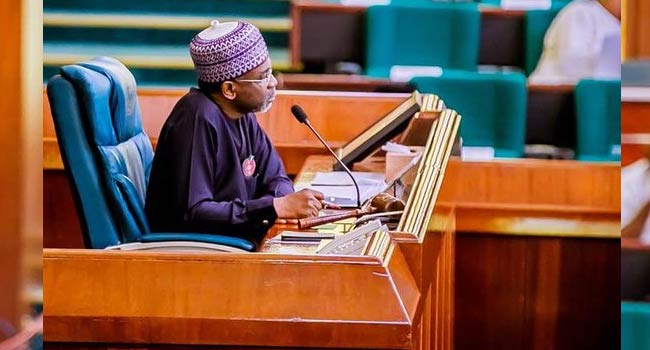Legislature
Finance bill passes through first reading

The House of Representatives, on Tuesday, passed the Finance bill, 2020 through First Reading.
The Speaker, Hon Femi Gbajabiamila, who read the President’s communication, explained that President Muhammadu Buhari sought for the consideration of the proposed Finance bill, was in pursuant to Sections 58 and 59 of the 1999 Constitution (as amended).
Buhari in a letter to the house, had explained that the Finance Bill, 2020 seeks to support the implementation of the 2021 Budget by proposing key reforms to specific taxation, customs, excise, fiscal and other laws.
According to him, the bill seeks to “adopt appropriate counter-cyclical fiscal policies to respond to the economic and revenue challenges precipitated by the decline in international oil prices, as well as the impact of the COVID-19 pandemic on the Nigerian economy.
The bill also seeks to reform extant Fiscal Policies to prioritise job creation, economic growth socio-economic development, domestic revenue mobilisation, as well as to foster closer coordination with Monetary and Trade Policies and provide fiscal relief for taxpayers by reducing the applicable minimum tax rate for two consecutive years of assessment, as well as reforming the commencement and cessation rules for small businesses.
“Propose measures to fund the Federal Government’s COVID-19 Pandemic response and introduce provisions to enhance the recovery of corporate donations towards responses to the COVID 19 Pandemic, as well as any similar crises in the future.
The bill will also “amend certain aspects of the Fiscal Responsibility Act, to align this Act with the 1999 Constitution (as amended), as well as to enhance fiscal efficiencies by controlling the cost-to-revenue ratios of key State and Government-Owned Enterprises, and amend the Public Procurement Act to implement key procurement reforms previously proposed by the National Assembly, in 2019, to extend the scope of the Act to the Federal Judiciary and Legislature accelerate procurement processes, increase mobilisation fee thresholds and provide for essential e- procurement reforms.”


